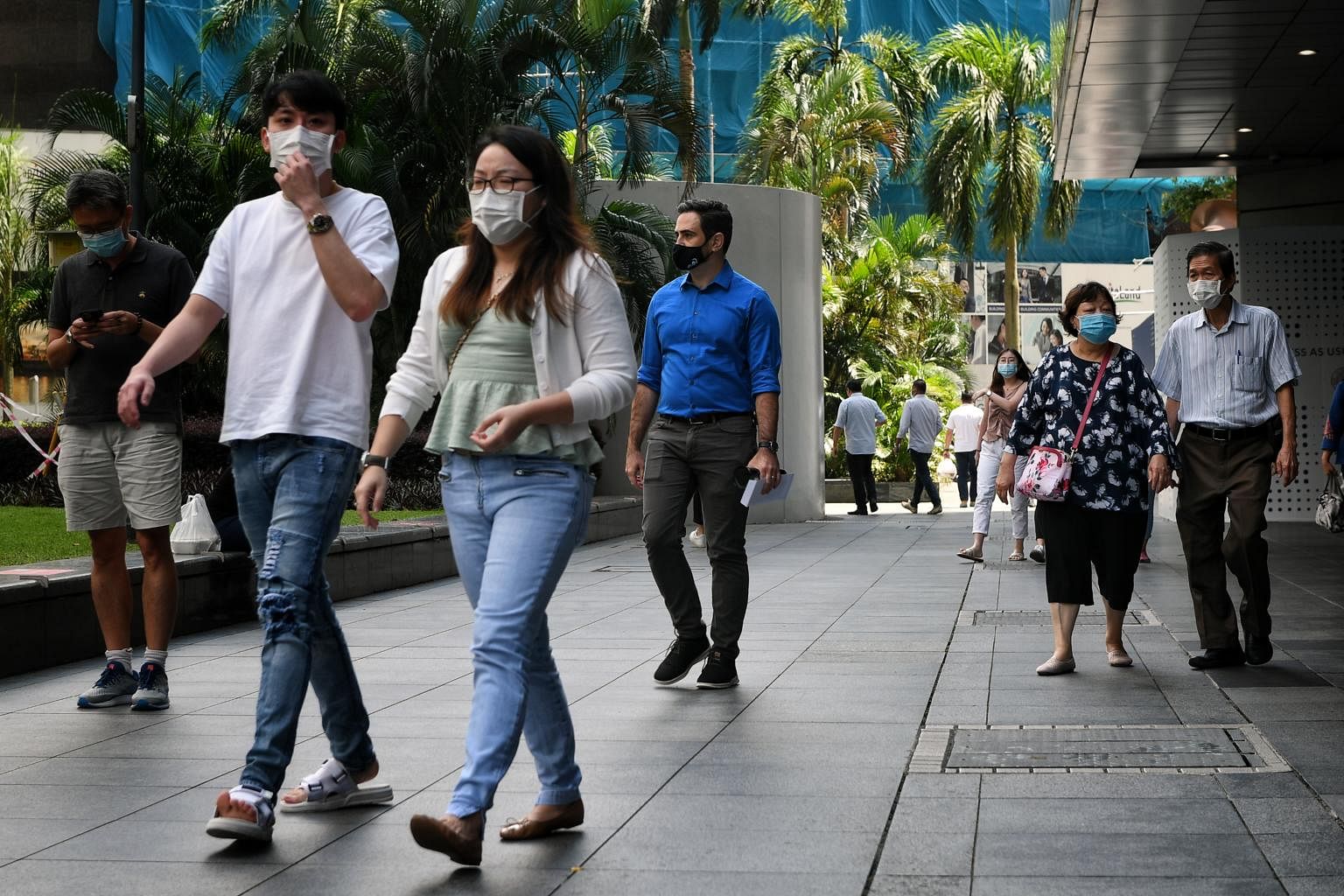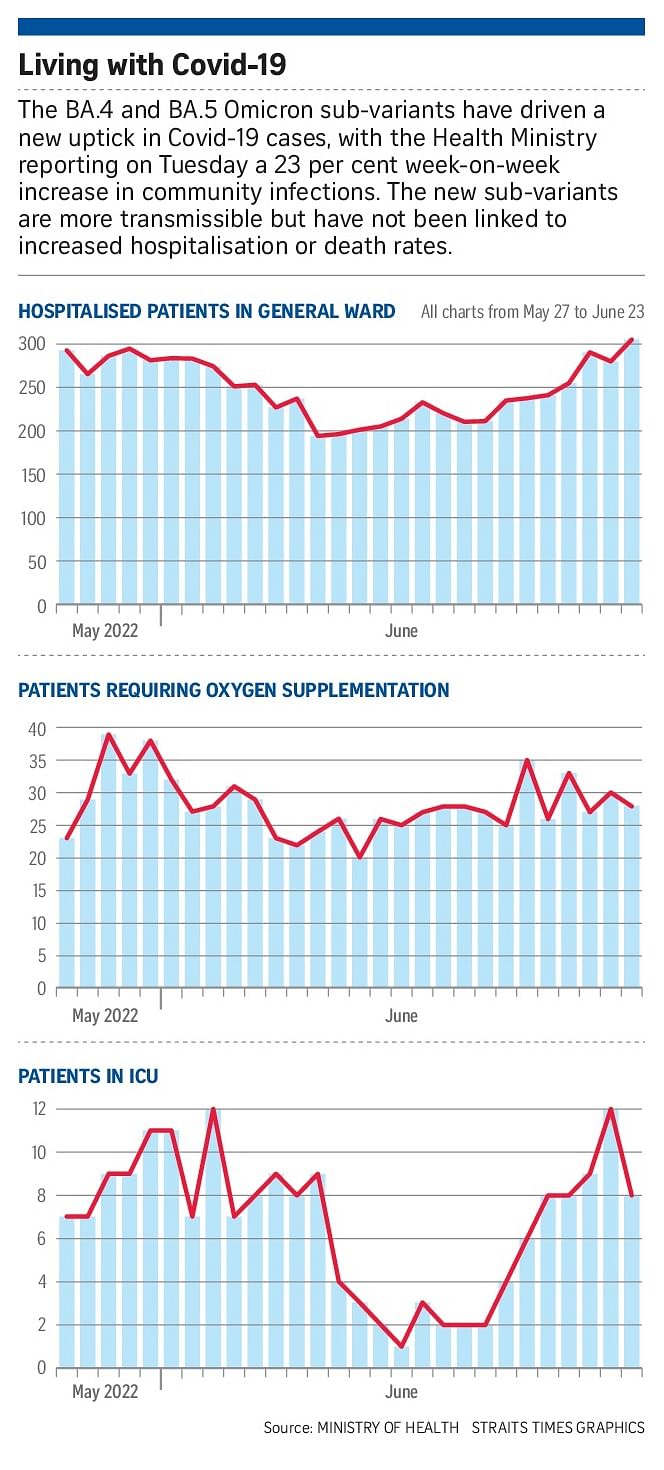Singapore unlikely to roll back Covid-19 rules due to wave driven by Omicron subvariants: Experts
Sign up now: Get ST's newsletters delivered to your inbox

This is especially since the country is in a good position to deal with the next wave.
ST PHOTO: KUA CHEE SIONG
SINGAPORE - It is unlikely that Singapore will tighten Covid-19 rules across the board in response to the recent upswing in virus cases, public health experts told The Straits Times.
This is especially since the country is in a good position to deal with the next wave and any rollback will have a significant impact on the economy and society.
"We would need good justification," said infectious diseases expert Dale Fisher.
"It's really hard to see a situation where you'd want to resume blanket measures, as they have a social and economic impact. You would want to make sure it is necessary."
Professor Fisher, a senior consultant at the National University Hospital, added that tightening measures would be necessary only if a new variant - which people have no immunity against - emerged, or if a completely new virus surfaced.
Singapore has seen an uptick in Covid-19 cases driven by the BA.4 and BA.5 Omicron subvariants, which are more transmissible but have not been linked to higher hospitalisation and death rates.
On Tuesday (June 21), the Health Ministry said these variants accounted for around 30 per cent of all virus cases in the past week, up from 17 per cent the week before.
A total of 7,109 new cases were reported that day, making for a 23 per cent week-on-week increase in community infections. There were 6,606 new cases on Thursday.
Professor Teo Yik Ying, dean of the Saw Swee Hock School of Public Health at the National University of Singapore, noted that these variants have been spreading across multiple countries over the past two months, with both North America and Europe seeing a surge in local transmissions.
"The proliferation of Covid-19 infections internationally that are caused by the BA.4 and BA.5 subvariants will certainly spill over to Singapore, given that the country is an international air and trading hub," he said.
Asked if increased travel during the June holiday period is behind the recent increase in Covid-19 cases, Associate Professor Alex Cook, vice-dean of research at the Saw Swee Hock School, said this was unlikely to be the case.
While travel may have brought these subvariants into Singapore, their spread is a result of inherently greater transmissibility and lower effective immunity against them compared with Omicron, he said.
The experts reiterated that hospital capacity - especially bed space in the intensive care unit - will impact the country's decision to reinstate safe management measures.
In any case, Singapore is more prepared to handle any surges, given that it successfully coped with the Omicron wave, they said.
"Now, more of us are doubly protected because of being vaccinated and having been infected during that wave," Prof Cook said. "So, the proportion of infected people getting hospitalised should be lower and hence more manageable by the healthcare system."
It could make sense to tighten measures in settings such as hospitals and nursing homes, where there are more vulnerable people, Prof Fisher added.
"But really, the best protection for people in those specific settings is vaccination - that advice has never gone away."
How should Singaporeans then react to the latest upswing in Covid-19 infections?
Prof Teo said there was no need for people to live in a state of paranoia, and that they should instead exercise personal responsibility by getting vaccinated when necessary and doing self-tests when unwell.
"There is certainly no harm in people following news on the Covid-19 situation locally and internationally, but there is no cause for concern or to be unduly influenced by Covid-19 trends," he said.
"There are specific health units established overseas and locally to sound the alarm when the situation warrants additional attention and concern."



